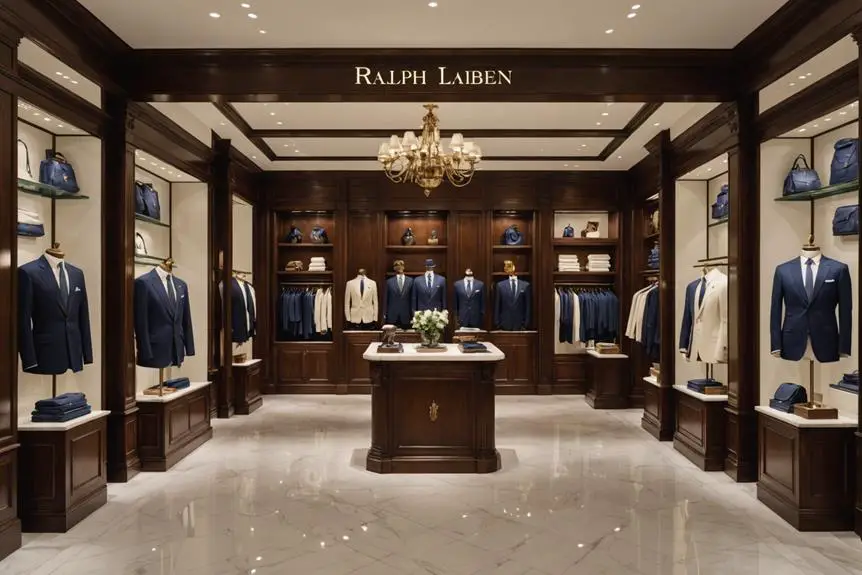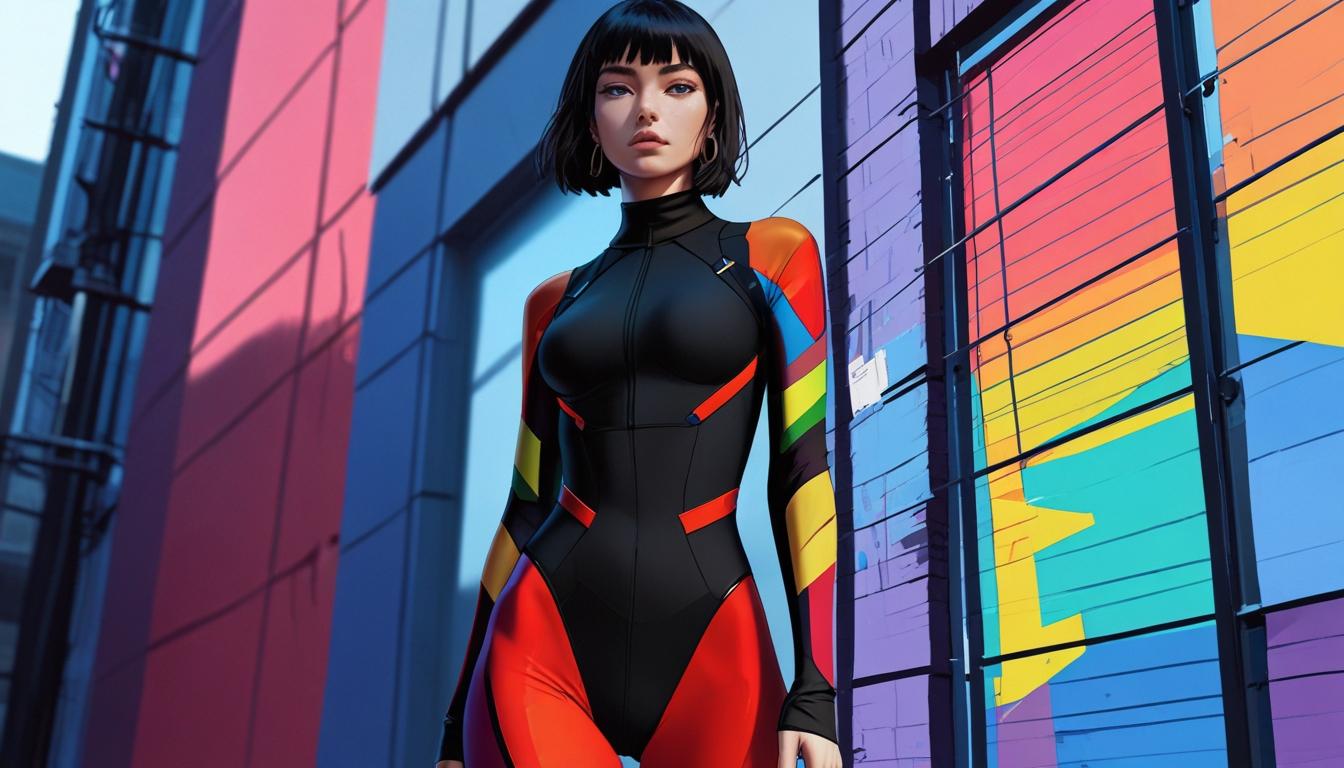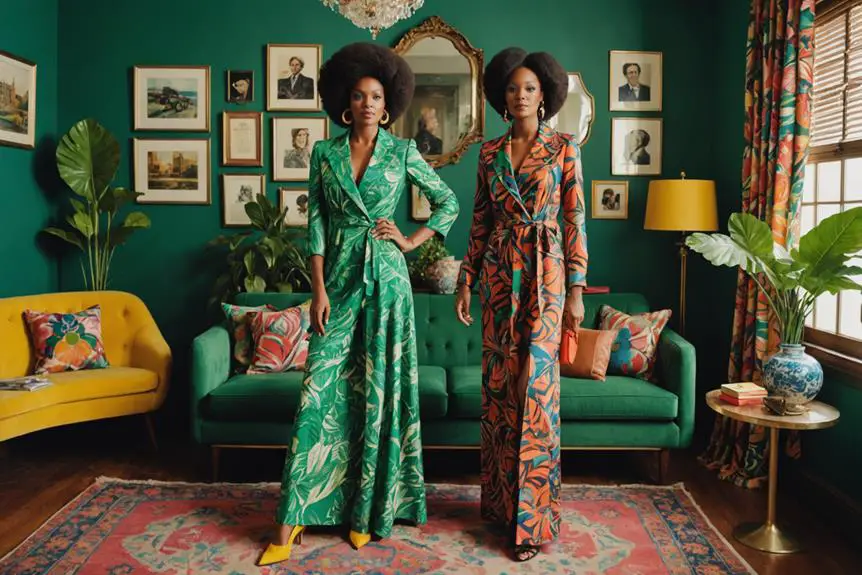So, who owns Ralph Lauren? Well, it's mostly in the hands of institutional investors. But here's the kicker—Ralph Lauren himself has a solid chunk of shares, which helps set the brand's creative spark! He's not just a name; he's the Executive Chairman and keeps things fresh as the Chief Creative Officer. The company's publicly traded on the NYSE, under ticker RL, so investors can pick up some shares too. Isn't that cool? With all the market action and plenty of exciting changes, you might be curious about them. Stick around; there's so much more to uncover!
Overview of Ralph Lauren Corporation
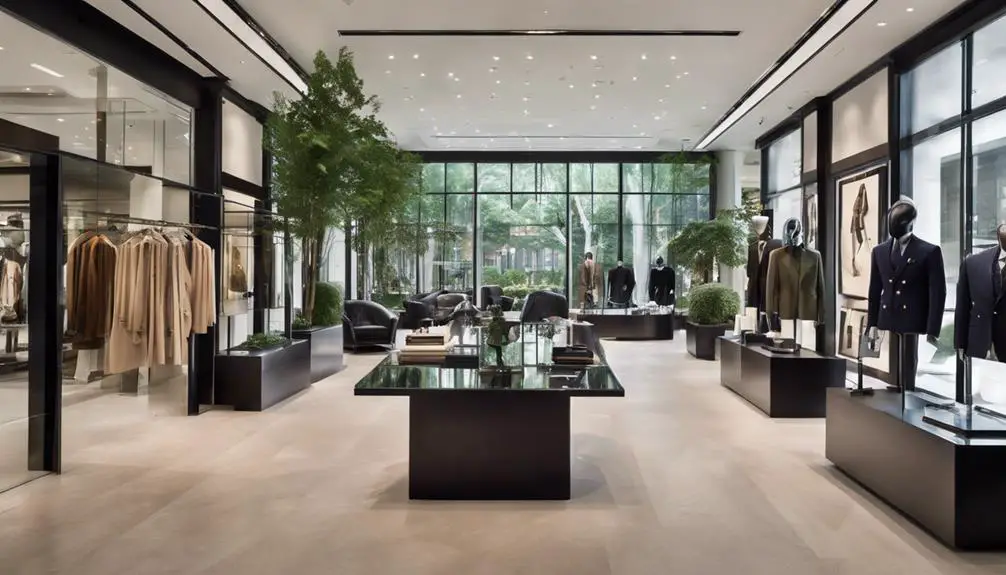
Ralph Lauren Corporation is a leading name in luxury lifestyle products, founded in 1967 by Ralph Lauren himself. You probably know them for their iconic Polo Ralph Lauren line, but they offer so much more! This publicly traded company is listed on the New York Stock Exchange under the ticker symbol NYSE: RL, making it a big player in the market.
Ralph Lauren is all about brand authenticity and timeless style. With 483 directly owned stores and a vast international retail network, including 93 stores operated by licensing partners, you can find their products almost everywhere! Their brand portfolio includes various lines like Lauren Ralph Lauren and Chaps, which cater to different tastes and budgets.
What's really impressive? Ralph Lauren Corporation has shown strong financial performance lately, with revenue growth and positive retail comps across all regions. So, whether you're shopping for a classic shirt, a stylish fragrance, or even home goods, Ralph Lauren has something for you. Isn't it great to know that a brand with such a rich history is still thriving today? Immerse yourself in their world of luxury lifestyle products, and you might just find your next favorite piece!
Shareholder Structure
In the domain of publicly traded companies, Ralph Lauren Corporation boasts a diverse shareholder structure that includes both institutional and retail investors. You might be wondering how this all works, right? Well, the mix of shareholders plays a vital role in shaping the company's future and maintaining market stability. Here's a quick breakdown:
- Institutional Investors: They own a significant percentage of shares, which helps guide governance decisions and provides stability.
- Ralph Lauren's Commitment: He holds a notable portion of shares, showing his ongoing influence and dedication to the brand.
- Shareholder Engagement: Recent initiatives highlight transparency and keep investor confidence high, especially during uncertain times.
With shares traded on the New York Stock Exchange under the ticker RL, Ralph Lauren Corporation is serious about returning value. They even declared a quarterly dividend of $0.825 per share recently! So, if you're an investor, this structure not only enhances your confidence but also makes you feel like a part of something bigger. Isn't that exciting? Plus, knowing that the company prioritizes communication and stability makes it even better!
Key Leadership Figures
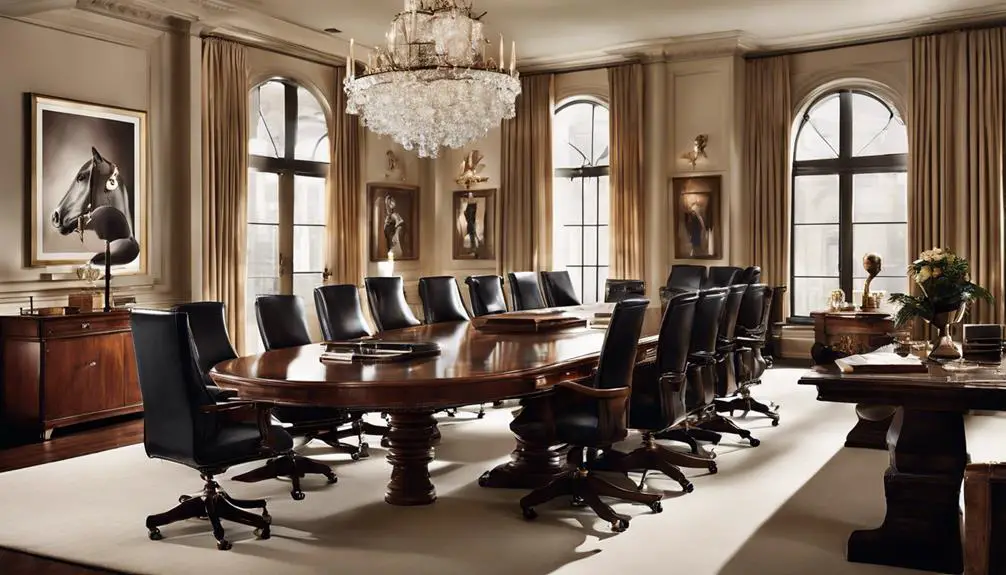
At the helm of Ralph Lauren Corporation, key leadership figures play an essential role in shaping the brand's vision and strategy. You'll find Ralph Lauren himself leading as the Executive Chairman and Chief Creative Officer, bringing his unique flair to the table. Since 2017, Patrice Louvet has stepped in as President and CEO, drawing on his experience from Procter & Gamble to steer the company forward. The brand's commitment to innovation and cultural impact is evident in their ongoing efforts to adapt to contemporary fashion trends.
What's exciting is the leadership team's focus on strategic partnerships and staying true to Ralph Lauren's brand identity. They know that adapting to market changes is imperative for success, and they're committed to keeping the brand fresh and relevant. With Valerie Jarrett joining the board of directors in October 2020, the company benefits from her diverse insights and experience, broadening the leadership's perspective.
Together, these figures work tirelessly to guide Ralph Lauren Corporation, ensuring it remains a beloved name in fashion. Their dedication to innovation and collaboration drives the company's direction and growth. So, how do you feel about the direction they're taking? It's a thrilling time for Ralph Lauren, and you're right in the middle of it!
Historical Ownership Changes
Over the years, Ralph Lauren Corporation has seen its ownership landscape shift dramatically. Founded in 1967, Ralph Lauren initially ran the brand privately until it went public on the New York Stock Exchange in 1997. Since then, several ownership changes have occurred, mainly through acquisitions and leadership shifts. Significantly, the brand has maintained its cultural relevance through strategic sponsorships and collaborations, which have influenced its direction and market appeal. To grasp the brand's evolution, it's crucial to reflect on how vintage Ralph Lauren items have been valued over time. Here's a quick rundown:
- Leadership Change: In 2015, Ralph Lauren moved from CEO to executive chairman and chief creative officer, shaking things up with new leadership.
- CEO Shuffle: Stefan Larsson stepped in as CEO but left in 2017 due to creative differences with Ralph. Then came Patrice Louvet, who took the reins and aimed to revitalize the brand.
- Club Monaco Sale: The company sold Club Monaco in May 2021, marking a significant divestiture since it had owned the brand since 1999.
Today, Ralph still holds significant influence as executive chairman, while the company enjoys the backing of institutional and retail investors. It's fascinating how ownership changes have shaped the Ralph Lauren Corporation, isn't it? Each shift brings new possibilities and fresh directions for this iconic brand!
Current Market Position
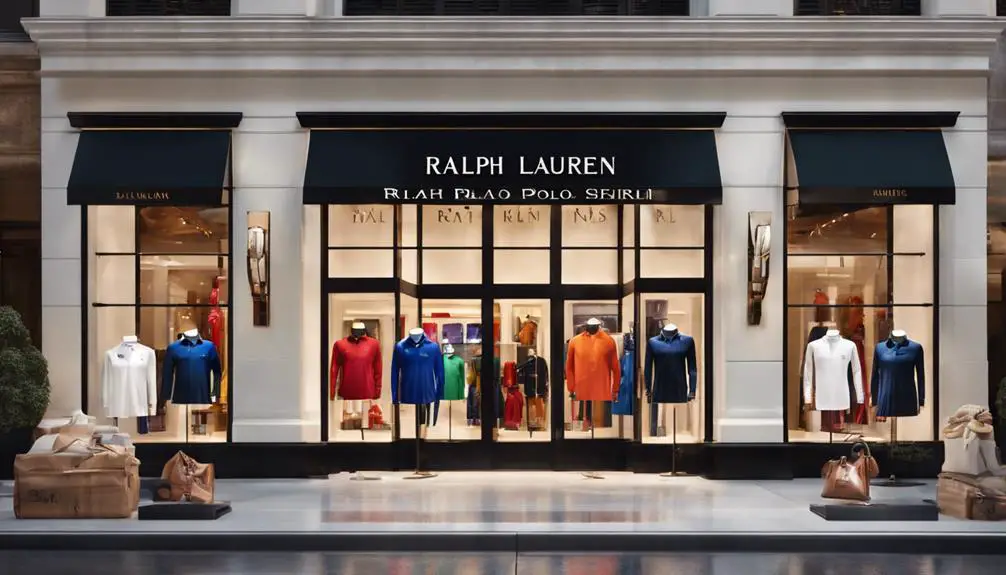
Strength and adaptability define Ralph Lauren Corporation's current market position. You're probably aware that this iconic brand trades on the New York Stock Exchange under the ticker symbol RL. They've carved out a strong market presence, standing tall against other luxury brands like Tommy Hilfiger and Calvin Klein. Did you know they've really focused on international markets? Their direct-to-consumer sales in Europe and Asia have even grown by 5%!
Moreover, Ralph Lauren's financial performance is impressive, with a revenue increase of 1% in the first quarter of Fiscal 2025. This growth is largely thanks to their international efforts. They're not just about profits, though. The company emphasizes sustainability and innovation, which are vital for attracting savvy consumers who care about brand loyalty.
In the luxury lifestyle category, Ralph Lauren continues to lead the charge, showing that they can adapt to changing times while staying true to their roots. So, whether you're rocking their polo shirts or dreaming of their runway shows, you can feel good knowing this brand is committed to both style and responsibility. How cool is that?
Frequently Asked Questions
Who Owns Majority of Ralph Lauren?
You'll find that Ralph Lauren's majority ownership lies with the Lauren family, shaping the fashion brand's evolution. Their iconic designs, collaborations, and strategic retail efforts drive brand loyalty and impact luxury market trends globally.
Who Runs Ralph Lauren Now?
You'll find Ralph Lauren's current leadership focused on brand evolution and fashion strategy. They tackle market challenges while enhancing financial performance, driving global expansion, leveraging celebrity endorsements, and prioritizing sustainability initiatives and customer engagement through digital transformation.
What Company Is Ralph Lauren Under?
Ralph Lauren operates under Ralph Lauren Corporation, which embodies its rich history and fashion brand evolution. You'll see retail expansion strategies, designer collaborations, and sustainability initiatives shaping its global presence and brand identity development, appealing to diverse consumer demographics.
Who Are the Shareholders of Ralph Lauren Corporation?
You'll find Ralph Lauren's shareholders include institutional investors like Vanguard and BlackRock, reflecting strong confidence in the fashion brand's ownership. Their investment strategies and governance shape stock performance amid luxury retail trends and market competition.
Conclusion
So, if you're curious about who owns Ralph Lauren, it's a mix of big investors and some super important folks at the top. The brand has had its ups and downs over the years, but it's still a big player in the fashion world. Isn't it cool to think about how a brand can change hands but still hold that classic style we all love? Whether you're a fan or just curious, Ralph Lauren's story is pretty inspiring!
